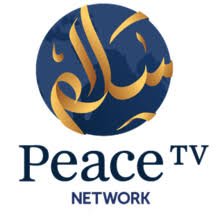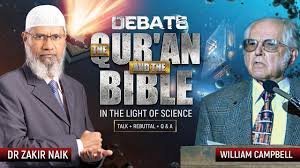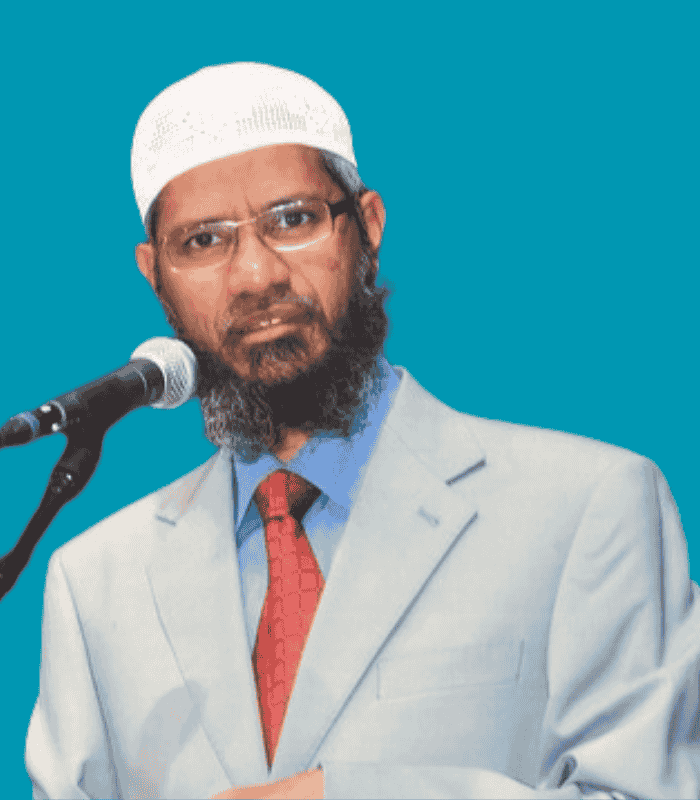With over 20 million followers on social media and a global presence across countries, Dr Zakir Naik has emerged as one of the most influential Islamic scholars of our time. Yet, his rise to prominence has not been without controversy.
Born in India, doctor Zakir Naik has become a leading figure in Islamic preaching, using his expertise in the Quran, Hadith, and other religious texts to spread his message. What sets him apart is his ability to engage in debates with people of different faiths, where he systematically uses religious scriptures from multiple traditions to support his arguments. Over the years, his public lectures, often held in packed auditoriums, have gained millions of viewers through various platforms like YouTube, Peace TV, and social media.
This article aims to provide a comprehensive overview of Dr Zakir Naik’s life, including his early years, education, rise as a religious leader, contributions to Islamic scholarship, and the controversies surrounding him.
Dr Zakir Naik’s Early Life and Education
Dr Zakir Naik’s family and birth:
Zakir Naik was born in Mumbai, India, on October 18, 1965. He was raised in a middle-class Muslim family in a culturally rich environment that would later shape his worldview.
His father, Abdul Karim Naik, was a physician and a respected figure in the medical community, which instilled in Zakir a deep appreciation for education and knowledge. His mother, Roshan Naik, who was equally devoted to their upbringing, played a crucial role in shaping his religious values. Zakir Naik’s family prioritized education, and this emphasis on academic and religious learning became a core part of his upbringing.
Dr Zakir Naik’s education
Doctor Zakir Naik’s academic life began in Mumbai, where he completed his early schooling. A bright student, he pursued science throughout his educational Career. His consistent academic performance led him to Topiwala National Medical College, where he embarked on a journey to become a doctor.
MBBS from Topiwala National Medical College and Nair Hospital:
Naik earned his Bachelor of Medicine and Bachelor of Surgery (MBBS) degree from Topiwala National Medical College and later trained at Nair Hospital.
Though trained as a medical doctor, Dr Naik’s true passion lay in Islamic studies. His decision to shift from practising medicine to full-time Islamic preaching was inspired by Sheikh Ahmed Deedat, a renowned South African scholar known for his work in comparative religion. Dr Naik’s educational background in science and medicine equipped him with the analytical tools needed to approach religious debates logically and precisely, which has become a hallmark of his style.
Despite not having a formal education in Islamic theology, Dr Zakir Naik self-taught much of his knowledge of the Quran, Hadith, and comparative religion, which he has successfully combined with his academic background to build his reputation as a scholar of religion.
Zakir Naik qualification and Career
Medical Career
Practicing physician (1991-1993):
After completing his MBBS, Dr Zakir Naik practised as a physician from 1991 to 1993. He worked in Mumbai, providing medical services to his community. Despite his success in the medical field, Naik felt a deeper pull toward religious studies and Islamic preaching. His brief medical Career was marked by dedication to his patients, but it was during this period that he started exploring his passion for comparative religion and dawah.
The decision to focus on Islamic da’wah:
In 1993, Naik made a life-changing decision to leave his medical Career behind and focus entirely on Islamic da’wah (missionary work). Inspired by the need to clarify misconceptions about Islam and present it as a rational, scientifically aligned religion, he shifted his attention to public speaking. His medical background contributed to his analytical approach, using logic, science, and evidence in his arguments during debates and lectures.
Islamic Scholarship
Founder, Islamic Research Foundation (IRF):
In 1991, Dr Zakir Naik founded the Islamic Research Foundation (IRF) in Mumbai. The IRF aimed to promote Islamic awareness, comparative religious studies, and interfaith dialogue. Through IRF, Naik organized events, seminars, and debates to present Islam to a global audience. The foundation became a platform for spreading Naik’s lectures, which focused on the compatibility of Islam with science, addressing misconceptions, and engaging in debates with scholars from various faiths.
Founder, Peace TV (2006):

One of Naik’s most significant contributions to Islamic media was the launch of Peace TV in 2006. The channel, based in Dubai, broadcasts religious programming 24/7 and reaches millions of viewers across the world in multiple languages. Peace TV became a powerful medium for spreading Islamic teachings, promoting interfaith dialogue, and broadcasting Naik’s debates. His programs on Peace TV have been instrumental in spreading his message to a global audience, particularly in Muslim-majority countries and among diaspora communities.
International speaker and debater:
Dr. Zakir Naik gained international recognition for his ability to engage in debates on religious and scientific topics. He travelled extensively, delivering lectures in over 40 countries, including the United States, the United Kingdom, Saudi Arabia, and Malaysia. His debates with Christian scholars, atheists, and representatives from other religions drew large audiences in person and online. Naik’s speaking engagements have covered topics like “Islam and Modern Science,” “The Quran and the Bible in the Light of Science,” and “Islam and Terrorism,” attracting a wide following. His logical and methodical debate style, often citing verses from the Quran and the Bible, has earned him a reputation as a leading Islamic scholar in comparative religion.
Zakir Naik Books and Publications
Notable books of Dr. Zakir Naik:
Zakir Naik is also a prolific author, having written several influential books that explore various aspects of Islam, its teachings, and its relationship with other faiths.
Some Notable books of Dr. Zakir Naik are:
The Quran and Modern Science:
One of Dr Zakir Naik’s most prominent works, The Quran and Modern Science delves into the compatibility between the Quran and scientific discoveries. In this book, Naik argues that many Quranic verses align with modern scientific facts, such as embryology, astronomy, and geology. He uses these examples to demonstrate that the Quran is not only a spiritual guide but also a source of scientific knowledge, proving its timeless relevance.
Islam and Christianity:
In Islam and Christianity, Naik compares the two major world religions, focusing on the theological differences and similarities between them. He uses a methodical approach to analyze the scriptures of both Islam and Christianity, particularly the Quran and the Bible, to highlight where the two faiths converge and diverge. The book aims to promote understanding and respect between followers of both religions while defending Islamic beliefs.
Answers to Non-Muslims’ Common Questions:
In this publication, Naik addresses the most frequently asked questions that non-Muslims have about Islam. He provides clear, evidence-based answers to misconceptions about topics such as terrorism, women’s rights, and the Islamic concept of God. This book is often used as a resource in interfaith dialogue and debates, helping to bridge the gap between Muslims and non-Muslims.
Other Publications
List of books, articles, and DVDs:
Dr Zakir Naik has an extensive catalogue of work in the form of books, articles, and DVDs. Some of his other notable publications include:
“Similarities Between Hinduism and Islam”
“The Concept of God in Major Religions”
“The Rights of Women in Islam”
“Islam and Secularism”
“The Role of Muslims in Global Peace”
Naik has also produced numerous DVDs of his lectures and debates, which are widely distributed. These materials cover various subjects, including comparative religion, Islamic teachings, and contemporary issues. His articles and books have been translated into several languages to reach a global audience, further extending the impact of his message.
Dr Zakir Naik’s famous debates
“Islam and Christianity” with Dr. William Campbell:

One of Dr. Zakir Naik’s most widely recognized debates took place in 2000 with Dr. William Campbell, a Christian scholar and medical doctor. The debate, titled “The Quran and the Bible in the Light of Science,” centred on scientific accuracy in the Quran and the Bible. Naik systematically presented what he argued were scientific miracles in the Quran, contrasting them with passages in the Bible that, in his view, did not align with modern scientific knowledge. The debate attracted significant attention, further elevating Naik’s status as a prominent figure in comparative religion.
“The Quran and Bible” with Pastor Ruknuddin:
In another notable debate, Dr. Zakir Naik engaged Pastor Ruknuddin on the similarities and differences between Islam and Christianity, specifically focusing on their sacred texts—the Quran and the Bible. Naik’s approach involved comparing the prophetic messages of both religions, the concept of God, and the authenticity of the scriptures. His ability to quote both religious texts in their original languages (Arabic for the Quran and Hebrew/Greek for the Bible) impressed audiences. It reinforced his reputation as a skilled debater.
Other notable debates:
Over the years, Naik has participated in numerous debates with religious scholars, atheists, and critics of Islam. Some of his other famous debates include discussions on the existence of God, the authenticity of religious texts, and the compatibility of religion with modern science. His confrontations with notable figures like Sheikh Ahmed Sharif, Dr. Ravi Shankar, and Dr. Michael Brown have drawn large audiences, both live and online, and are often used as educational tools in Islamic studies.
Lecture Topics
Comparative religion:
Zakir Naik’s lectures on comparative religion are among his most famous. He frequently discusses the similarities and differences between Islam, Christianity, Hinduism, and other major world religions. He emphasizes the shared belief in monotheism, the concept of prophethood, and moral teachings while also addressing key doctrinal differences, such as the divinity of Jesus in Christianity. His lectures aim to promote interfaith dialogue yet often include apologetic defences of Islamic teachings.
Islamic apologetics:
Naik is also known for his lectures on Islamic apologetics, where he defends Islam’s principles against common criticisms. He tackles subjects such as the role of women in Islam, the misconception that Islam promotes terrorism, and the religion’s stance on human rights. These lectures aim to clear misunderstandings about Islam and present it as a faith of peace, logic, and reason.
Social issues:
Beyond theology, Naik frequently addresses pressing social issues through the lens of Islam. His lectures on topics like poverty, crime, and family structure draw from Islamic teachings to offer solutions to contemporary problems. For example, in his lecture on “Islam and the Problem of Alcoholism,” Naik highlights how Islamic prohibitions on intoxicants address the public health and societal challenges related to alcohol consumption. Similarly, his talk on “Islam and Women’s Rights” defends the rights and dignities afforded to women in Islamic law.
Dr Zakir Naik family
Wife: Farhat Naik:
Zakir Naik is married to Farhat Naik, who is actively involved in Islamic education and women’s empowerment. Farhat Naik is known for her work with the Islamic Research Foundation’s women’s division, where she helps to spread knowledge about Islam to women worldwide. She also delivers lectures and participates in programs that aim to clarify the role of women in Islam, promoting both education and spiritual development.
Son of dr zakir naik:

The couple has three children, and their eldest son, Fariq Naik, follows in his father’s footsteps. Fariq is a budding Islamic preacher who has already begun delivering lectures and talks on Islam at a young age. He has been trained in Islamic studies from a young age, learning from his father and studying various Islamic texts. Fariq often accompanies Zakir Naik on his international lecture tours. He has gained a growing following for his oratory skills and knowledge of Islam.
Controversies and Exile
Criticisms and Allegations
Terror funding allegations:
Dr. Zakir Naik has faced significant controversies, with some of the most serious accusations involving allegations of promoting extremism and links to terror funding. In 2016, after the Dhaka café attack in Bangladesh, some reports claimed that one of the attackers had been inspired by Naik’s speeches. Indian authorities subsequently began investigating him for allegedly encouraging terrorism and radicalization. Naik has consistently denied these claims, asserting that his teachings promote peace and understanding and that his words have been taken out of context.
Hate speech accusations:
Naik has also been accused of making inflammatory remarks in his lectures, which some groups claim incite hatred against non-Muslims. In particular, his statements on religious conversions, criticism of other faiths, and controversial remarks about terrorism (such as his statement that “every Muslim should be a terrorist” in the context of fighting injustice) have sparked public outrage in India and abroad. Despite this, Naik has defended his speeches, arguing that they are often misquoted or misunderstood.
Dr. Zakir Naik Exile from India
Background and circumstances:
In light of the growing controversies, the Indian government launched multiple investigations into Dr Zakir Naik’s activities. His Islamic Research Foundation (IRF) was banned in India in 2016 under the Unlawful Activities Prevention Act (UAPA). Around the same time in 2016, Naik left India, citing concerns about his safety and claiming that he was being unfairly targeted for his religious views. He has since lived in exile, primarily in Malaysia, where he was granted permanent residency.
Current status:
Since fleeing India, Naik has been declared a fugitive by Indian authorities. Multiple arrest warrants and requests for extradition have been filed, though Malaysia has so far refused to extradite him, citing humanitarian concerns. Naik remains a polarizing figure, with his supporters praising his work in Islamic education and da’wah. At the same time, critics accuse him of spreading radical views.
Recent Developments:
While writing this article, Dr Naik is scheduled to visit Pakistan in October 2024. He will deliver public lectures in Karachi, Lahore, and Islamabad, which has sparked excitement among his followers.
Pakistan Tour Schedule:
Karachi: October 5-6
Lahore: October 12-13
Islamabad: October 19-20
Legacy and Impact of Zakir Naik
Influence on Muslim Youth:
Zakir Naik has had a profound impact on Muslim youth worldwide, especially those interested in Islamic scholarship and da’wah (the act of inviting others to understand Islam). His clear, logical presentations of Islamic teachings, often intertwined with scientific arguments, have resonated with young Muslims seeking intellectual and theological grounding in their faith. Many admire his ability to answer complex religious and societal questions in simple, accessible terms. This has motivated countless young people to engage in Islamic activism, whether through scholarship, public speaking, or online platforms.
Promoting interfaith dialogue:
A central feature of Naik’s legacy is his emphasis on comparative religion and interfaith dialogue. His debates and lectures often focus on highlighting common ground between Islam and other major world religions, particularly Christianity and Hinduism. By addressing shared values and beliefs, Naik promotes the idea that interfaith dialogue can lead to greater understanding and mutual respect. His efforts have led many Muslims to feel more confident engaging in discussions with people of other faiths, strengthening inter-religious communication.
Critique and Controversy:
While Zakir Naik’s influence is undeniable, his legacy is not without significant critique. His confrontational style, particularly in debates about religion, has been criticized for alienating non-Muslims and even some Muslims. Critics argue that his approach, which often focuses on discrediting other religions, can be seen as divisive rather than fostering constructive dialogue. Moreover, the allegations linking Naik to extremist ideologies have severely tarnished his reputation in many circles, particularly in India and among some Western governments.
Furthermore, some Islamic scholars have expressed concerns about his lack of formal Islamic theological training, arguing that his interpretations of religious texts can sometimes be overly simplistic or out of context. Despite these criticisms, Naik remains a key figure in Islamic scholarship, particularly for those interested in apologetics and defending Islam against common critiques.
Conclusion
Dr Zakir Naik’s journey from a practising physician to a globally recognized Islamic scholar is a remarkable testament to the power of faith and communication. Born in Mumbai, India, he has dedicated his life to the study and dissemination of Islamic teachings. His extensive education, which includes an MBBS degree and informal studies under esteemed scholars, laid the foundation for his later work in Islamic da’wah. Through his lectures, books, and the establishment of platforms like Peace TV, Naik has reached millions, inspiring a new generation of Muslims to engage with their faith intellectually and confidently.
Frequently Asked Questions
Who is Dr. Zakir Naik?
Dr. Zakir Naik is a prominent Islamic scholar and medical doctor known for his expertise in the Quran, Hadith, and comparative religion. He is recognized for his debates and public lectures, where he engages with people of different faiths.
Where was Zakir Naik born?
Zakir Naik was born on October 18, 1965, in Mumbai, India.
Who is Zakir Naik’s wife?
Zakir Naik is married to Farhat Naik, who is actively involved in Islamic education and women’s empowerment.
Who is Zakir Naik’s son?
Zakir Naik’s eldest son is Fariq Naik, who is following in his father’s footsteps as a budding Islamic preacher.
What did Dr. Zakir Naik study?
Dr Zakir Naik studied medicine and earned an MBBS degree from Topiwala National Medical College in Mumbai, but he is self-taught in Islamic studies.
Who is Zakir Naik’s teacher?
Dr. Zakir Naik was inspired by Sheikh Ahmed Deedat, a renowned South African scholar known for his work in comparative religion.
Why is Zakir Naik banned in India?
Zakir Naik is banned in India due to allegations of promoting extremism and links to terror funding, particularly after the Dhaka café attack in Bangladesh.
What are the most popular debates of Dr. Zakir Naik?
Some of the most popular debates include “The Quran and the Bible in the Light of Science” with Dr. William Campbell and discussions on the similarities and differences between Islam and Christianity, among other topics.
What is Zakir Naik’s nationality?
Zakir Naik is Indian by birth but currently resides in Malaysia, where he has been granted permanent residency.
References
- Naik, Zakir. The Quran and Modern Science: Compatible or Incompatible? Islamic Research Foundation, 2006.
- Naik, Zakir. Islam and Christianity: A Comparative Study. Islamic Research Foundation, 2008.
- Naik, Zakir. Answers to Non-Muslims’ Common Questions About Islam. Islamic Research Foundation, 2008.
- Dr ZakirNaik, A Brief Introduction
- “Zakir Naik: The Controversial Islamic Scholar.” BBC News, October 24 2016.
- “Zakir Naik’s Influence on Muslim Youth.” Al Jazeera, February 17 2020. Al Jazeera
- “Dr. Zakir Naik: Biography and Profile.” Islamic Research Foundation. IRF
- “Zakir Naik: From Doctor to Controversial Islamic Speaker.” The Guardian, November 15 2019.
- “Understanding Zakir Naik’s Exile from India.” The Indian Express, July 1 2020. The Indian Express
- “Zakir Naik: The Preacher Who Became a Pariah.” The New York Times, January 3 2021.
- “The Role of Islamic Preachers in Modern Society: A Case Study of Zakir Naik.” Journal of Islamic Studies, Vol. 32, No. 4, 2020.
